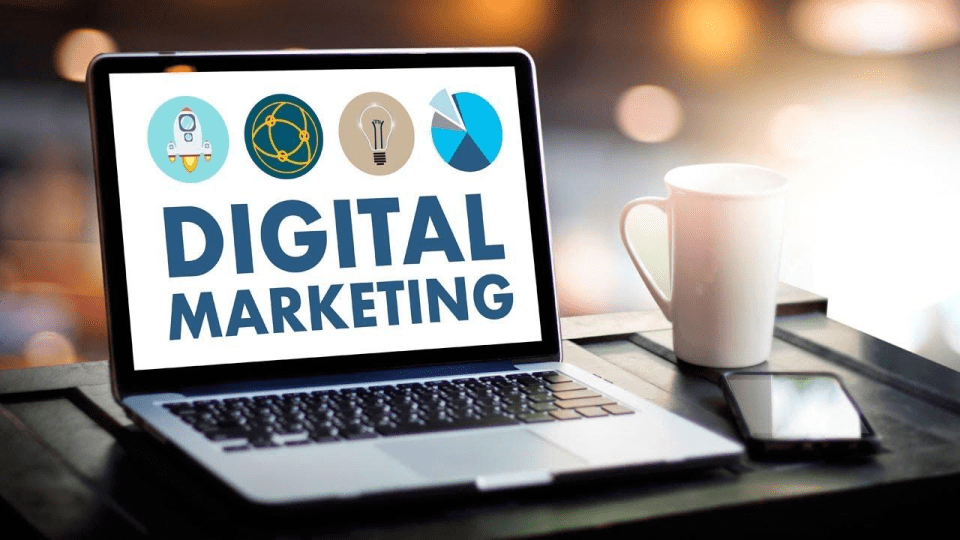Unlock Lead Generation with No-Code Tools
Today, digital marketing moves at breakneck speed. However, mastering no-code tools stand out as a transformative solution for marketers seeking agility and innovation. Why do they stand out? These tools enable you to build, deploy, and manage digital products and campaigns without the need for extensive coding knowledge, bridging the gap between technical possibilities and marketing strategies.
In this article, we’ll talk about how to use no-code tools to boost your marketing strategy. Let's get into it!
Why No-Code Tools Are Essential for Modern Marketers
No-code software, also known as codeless app builders, allows you to design, build, and launch applications through user-friendly graphical interfaces. This approach not only simplifies but also accelerates the creation process, freeing you from dependency on IT departments or software developers.
The independence to execute changes and updates in real-time lets you respond swiftly to market trends and customer feedback, keeping your campaigns relevant and impactful.
Enhancing Lead Generation and Conversion
Effective lead generation is vital for any marketing strategy. No-code tools empower you to create engaging, customized landing pages, forms, and pop-ups that can be seamlessly integrated into your websites or social media platforms. These elements are designed to capture potential customers' attention and details, funneling them into tailored marketing pathways that significantly boost conversion rates.
You can utilize A/B testing features inherent in many no-code software platforms to experiment with different design elements and content, refining your approach based on concrete data regarding what resonates most with your audience. This methodical testing ensures your lead capture strategies are optimized for maximum effectiveness.
Customizing the Customer Journey
Personalization enhances customer engagement by delivering content and interactions that are tailored to the individual's preferences and behaviors. No-code platforms offer dynamic tools for creating personalized user experiences, from customized emails triggered by specific actions to personalized recommendations and offers displayed on your site.
For instance, you might design an interactive quiz that guides potential customers to products that suit their needs or develop a calculator that estimates costs or savings with your services. These engaging, personalized interactions can significantly enhance the user experience, encouraging initial conversion and long-term loyalty.
Streamlining Operations with Automation
Automation is a key benefit of no-code tools. It allows you to automate mundane tasks such as data entry, lead nurturing, and customer service responses. This capability frees up your team to focus on more complex and creative tasks, enhancing productivity and reducing the potential for human error.
Automated workflows can be set up to nurture leads through scheduled emails, update CRM systems automatically, or even initiate follow-ups based on customer behavior. This ensures that every lead is attended to in a timely manner, improving your chances of conversion and customer retention.
Leveraging Integrations for Comprehensive Campaign Management
No-code platforms typically offer extensive integration capabilities, allowing you to connect with various other marketing tools and systems, such as analytics platforms, email marketing services, and CRM software. These integrations facilitate a cohesive data ecosystem where insights gathered from various sources inform your marketing decisions, creating a more comprehensive understanding of your campaign’s performance and ROI.
Integrations also enable a seamless flow of information across platforms, ensuring that your marketing efforts are consistent and coherent across all channels. This consistency is crucial for maintaining a strong brand image and delivering a unified customer experience.
Keeping Pace with Market Evolutions
The digital marketing industry is perpetually evolving at a breakneck pace, and staying updated with the latest tools and trends is essential for maintaining a competitive edge. No-code platforms are continuously improved with new features and updates, which can help you adapt to technological changes and consumer expectations. To ensure a seamless adoption of new tools, Loom alternatives can provide equally effective screen recording and tutorial capabilities, helping teams create clear training materials and support content.
Engaging with the community around your chosen platform can also provide valuable insights and inspiration. Many no-code tools have active user communities and offer access to a wealth of tutorials and case studies, which can be instrumental in keeping your marketing strategies at the cutting edge.
Conclusion
No-code tools are more than a convenient option for marketers—they are a strategic asset that can revolutionize digital marketing. Indeed, no-code app builders and other codeless software have developed so quickly only in the past decade. As a result, more and more businesses are adopting them due to their ease of use, cost-effectiveness, and customization potential.By adopting these tools, you can enhance your lead generation, customize user experiences, automate routine tasks, and integrate seamlessly with other systems, all while staying agile and responsive to the market.
The power of no-code tools lies in their ability to democratize the creation and management of digital campaigns, putting the control squarely in the hands of marketers. With these tools, you are well-equipped to execute complex digital strategies that meet the demands of today’s fast-paced marketing environment, driving growth and innovation in your campaigns.






